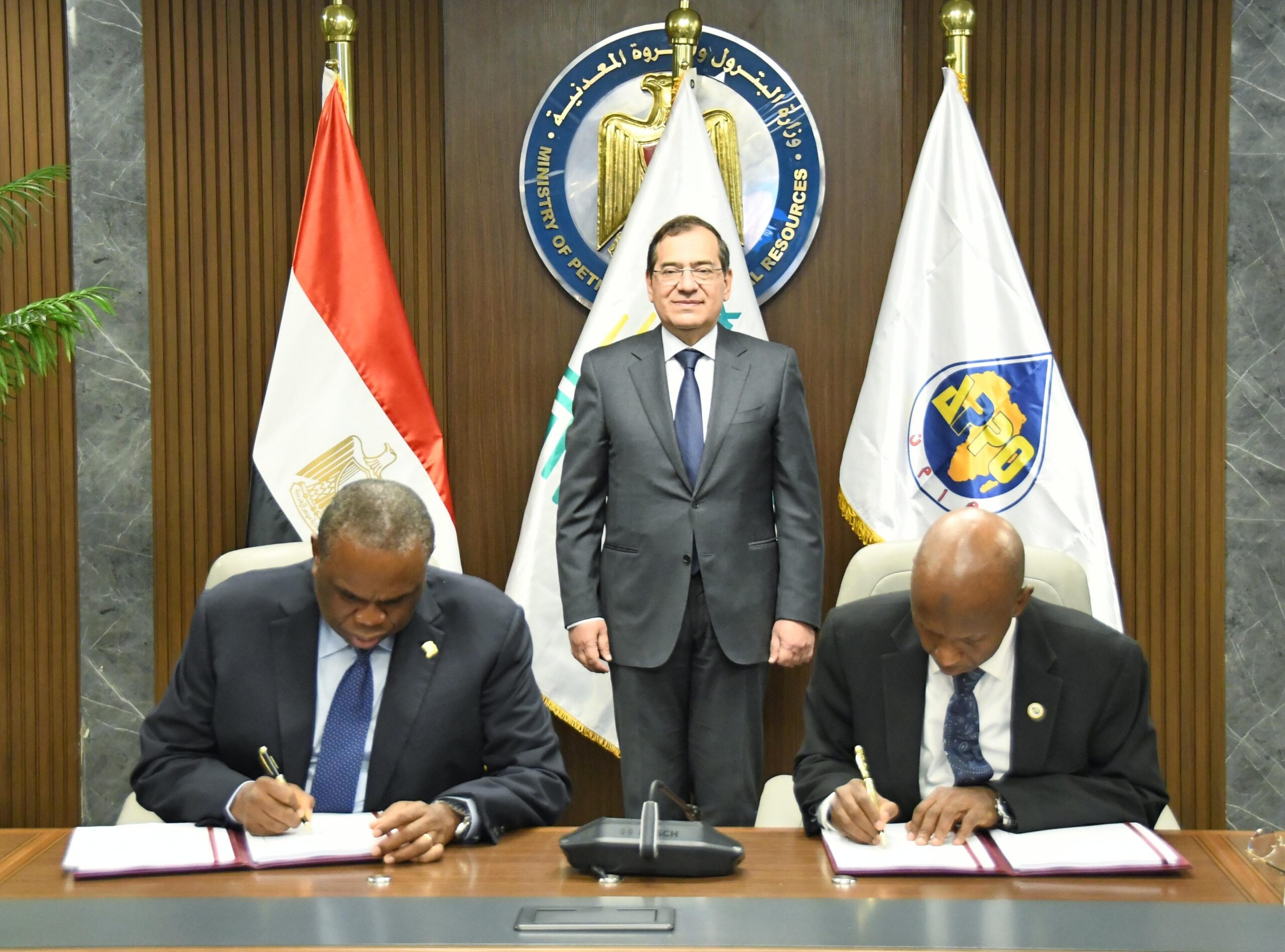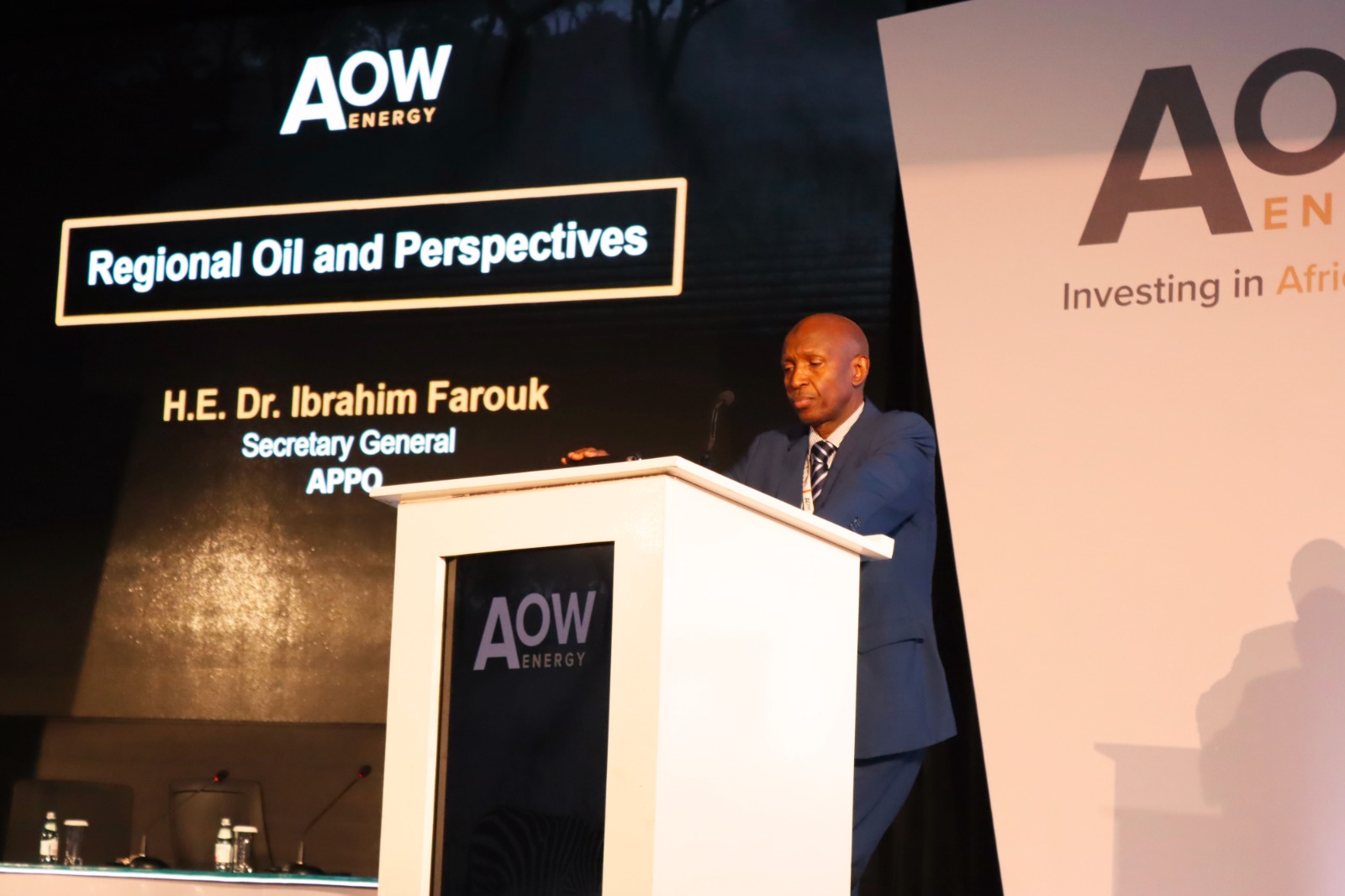Bismillahir Rahmanir Raheem,
Your Highness Prince Abdulaziz Bin Salman Bin Abdulaziz Al Saud, Minister of Energy of the Kingdom of Saudi Arabia and chairman of this occasion, Excellencies Ministers of APPO here present, Excellencies other Ministers, Excellencies Heads of international and inter-governmental energy organizations – GECF, IEA, IEF, IRENA and OPEC, other distinguished invitees, ladies and gentlemen.
I should like to begin by expressing my personal appreciation and that of the Organization that I represent, the 18 Member Country African Petroleum Producers’ Organization, APPO, for the invitation by the trio of IEA, IEF and OPEC to this very important annual event for the very first time. To us in APPO and indeed Africa, this invitation could not have come at a better time and this will become clear in the course of my remarks.
I should also like to commend the foresight of the initiators of this global energy dialogue. The creation of the IEF and the sustained work it has been doing over the years, have proven to be a huge blessing not only to the global energy community, which is its immediate constituency, but also to the global economy. The IEF has succeeded in bridging the wide gap in communication and understanding between the two divides that had characterized the global energy system – consumers and producers, developed and underdeveloped, rich and poor and now climate activists/idealists and climate realists.
Excellencies, I have been requested to present APPO’s perspective on Key Energy Markets and Policy Trends at this Ministerial Roundtable, which is part of the Global Energy Dialogue. I crave your indulgence to allow me to modify my talk and simply focus on global energy policy trends and their implications for Africa. As for developments in the energy markets, I believe they have been ably handled by the earlier presenters and since APPO is well represented in both IEF and OPEC, our perspectives align. Even at the IEA one of our Members is an Associate. Indeed, APPO has been most supportive of OPEC in its laudable efforts at the stabilization of the global oil market. In fact, APPO was the first international energy organization to come out in full support of the decision of the 33rd Meeting of the Declaration of Cooperation, DoC, Members, a decision that was highly criticized by the major consuming countries. We were also the first to come out and support the decision of the 9th OPEC+ Ministerial Meeting taken in the wake of COVID-19. So I am going to focus on global energy policy trends and their implications for the African continent and its people.
What are these global energy policy trends and what will be their impact on Africa and its people in the next 25 to 50 years?
Excellencies, we have heard presentations this morning from what are unarguably the World’s leading energy institutions. But as I listened attentively to what each of them presented, I asked myself, where does Africa feature in all those wonderful works that these organizations have been doing? I noticed in the presentations and also in the publications of these and other institutions that where Africa is mentioned, it is always in passing, or at best as an appendage.
To put my remarks in perspective I believe it is important to restate some known statistics about our situation in Africa. With 17.5% of the estimated world population of 8 billion at the end of 2022, the African continent is home to over 60 percent of the world’s population living without access to electricity and 30 percent of those without access to other forms of modern energy for cooking and domestic heating.
Africa’s population is projected to grow to 2.5 billion by 2050, when the world’s population would have hit 9.7 billion. This means that in just a little over 25 years from now, more than one-quarter of the inhabitants of our planet shall be on the African continent, and according to the IEA by 2040, 90% of the global population without access to electricity and some 50% of those without access to clean cooking will be in Sub-Saharan Africa.
What does this scenario portend for the African continent and its people and more broadly for universal social justice?
Today, Africa, with 17.5% of the world’s population contributes less than 3% of the world’s Gross Domestic Product, making it the least developed region of the world. This is even as it boasts of so much natural and mineral resources that power today’s global economy, from fuels to metals. Yet, and sadly so, the prospect of any fundamental change in Africa’s situation is not promising, that is if we fail to retrace our steps and do things differently from what we have been conditioned to do for ages. And this includes succumbing to pressure from powerful countries to do their biddings ostensibly in the interest of the global community. I am talking about the orchestrated global paradigm shift away from fossil fuels to renewable energies, euphemistically called the energy transition.
Excellencies ladies and gentlemen, lest we are misunderstood. APPO is not contesting the science of climate change. Neither are we against energy transition. However, what we want the champions of energy transition to acknowledge is the fact that fossil fuel induced climate change did not start in the last 50 years. It started since the world began to use coal and it began to accelerate with the introduction of oil and gas nearly 200 years ago. What we are saying is that today’s climate challenges are the products of primarily the Western industrial revolution and its intensive use of fossil fuels and also the past and current lifestyle of the people of the developed countries of the world.
Some statistics will help shed some more light on what we are saying. The global per capita energy consumption in 2021 was 72 MBTU. But when this is broken down into regions of the world, we find that the per capita energy consumption in the USA was 293 MBTU, which is 4 times the world average. If we take Europe, their average was 105 MBTU, which is 1.5 times the world average. For Africa, our per capita energy consumption was only 15 MBTU, which is one-fifth of the world average, one-seventh the European average and about one-twentieth the US average.
If we are to take Sub-Saharan Africa alone, the average drops to 10 MBTU or about 3 per cent that of the USA, 10 per cent of Europe and 14% of the global average. Yet, we are being pressurized by those who created the mess to abandon the energy we have in abundance for what no one can guarantee its availability nor affordability.
An equally important point we want the champions of energy transition to acknowledge is that they were aware of the dangers of burning fossil fuels to the atmosphere as far back as 1859 and 1896 when their own climate scientists, John Tyndall, a Scot, and Svante Arrhenius, a Swiss, respectively, published studies to prove that burning fossil fuels emit GHG which deplete the ozone layer.
But because these countries were determined to consolidate their industrial revolution, improve their transportation, agriculture, health systems and generally better the living conditions of their people, they carefully hid the findings of those studies from the world. And now that other countries, especially Africa, are on the verge of industrialization, and would require a lot of energy, which, at the moment, can best be provided by fossil fuels, we are being told that fossil fuels are dangerous for humanity. It is interesting to note that these developed countries have moved their economies from reliance on heavy industries and intensive energy production activities to the manufacture of knowledge, artificial intelligence and service delivery economies.
Excellencies, ladies and gentlemen, permit me to re-emphasize once again that APPO is not against energy transition nor are we against any fair, just, and equitable policy or measure introduced to safeguard the atmosphere from harmful emissions and by implication to make life safer for mankind.
Our position is that policies and measures introduced to check climate change should not be uniformly imposed on all societies without regard to their special circumstances, like their levels of socio-economic development and energy poverty.
To say that the global climate challenge is a universal challenge that requires the full commitment, contribution and sacrifice of all and sundry is implicitly saying that we are all equally responsible for the mess that has been created by the few. But that is not true. Those responsible for creating the mess should take full responsibility for cleaning the mess.
There is a school of thought that believes that if the earth’s atmosphere is a collective heritage of all the inhabitants of this earth, then any group that selfishly destroys it should be made to make reparations to the other victims of its destructive activities. And this is especially so where it can be established that the destruction of the common heritage gave the destroyers advantage over the other owners of the common heritage.
I have heard it argued that the main driver of today’s energy transition is not the fear of any climate catastrophe but the quest for energy security. In other words, if today’s developed countries were the ones endowed with the amount of fossil fuels found in other parts of the world, the story of energy transition would have been different. The technology to make fossil fuel environmentally friendly would by now have been perfected. Put in other words, oil and gas are harmful today because they are foreign controlled. I recall the Third Summit of OPEC heads of State in this beautiful city of Riyadh in 2007, offering one billion US dollars to any research institutions for the development of technologies that will enhance the environmental friendliness of oil. But the institutions that had the capacity for these researches, almost all in the developed countries, could not take the offer, not because they did not want it, but because it was not politically wise to go for it.
Yes, our leaders have signed the Paris Accord. Yes, our delegations go to the COPS and present NDCs. But those actions should not deceive the world into believing that all is well with our march to abandon fossil fuels. In fact, it will not be in the best interest of today’s climate activists to insist that Africa leaves fossil fuels in a hurry. For, the consequences shall not be limited to the African continent. Today’s horrors of crossing the Mediterranean into Europe shall be a child’s play compared what the world will see if Africa wakes up one day to find that it has been pressurized to abandon its fossil fuels and is unable to access the promised renewables.
Excellencies, to cajole us to be on board the energy transition train we are told that funds will be made available to assist us in the transition process. A climate fund, of up to one hundred billion US dollars a year, is established for that purpose. It will be used for climate mitigation and climate adaptation. In other words, the money shall be made available to countries that commit to energy transition under certain conditions. What is not generally highlighted is that these monies are not grants but loans. A very small fraction of it could be grant. But the danger of taking these loans especially for African countries with the mineral resources for the new energy economy is that they will be mortgaging these minerals and denying future generations the use of their wealth.
Is it not ironic that barely six months after COP26 in Glasgow, where the champions of climate change re-emphasized their commitment to the abandonment of fossil fuels, including oil and gas, their leaders came rushing to Africa to persuade them to pump more oil and gas, and also revive old oil and gas projects that for decades they did not want to talk about. What does this tell us about the pressure being out on us to abandon fossil fuels? Simple: Fossil fuel is dangerous if it is produced for the use of poor peoples. But when produced for the use of the developed countries, the word dangerous becomes muted and in its place we get the two words extenuating circumstance.
What is to be done?
Concerned about the plight of our people, especially the huge energy poverty on the continent, and the future of our energy industry in the face of pressure from powerful forces, APPO commissioned a study on the future of the oil and gas industry in Africa in the light of the energy transition. The findings of the study have shaped our vision, our strategic focus and our work at APPO. The study established 3 imminent challenges that the energy transition poses to the African oil and gas industry. These are the challenge of finance, technology, and markets. It noted that in the nearly 100 years that the oil and gas industry has been in Africa, Africans have continued to be dependent on foreign capital to operate the industry. It also established that the technology for the industry is largely foreign controlled. And finally, there is a huge dependence on foreign markets for its oil and gas. In 2020 for example, 75% of crude oil produced in Africa was exported while the figure for gas was about 45%.
In the absence of finance, as the traditional financiers have resolved to abandon the funding of oil and gas projects especially in Africa, technology, as the IOCs and service companies are gradually shifting research and development to renewables and in the absence of markets for our oil and gas, the logical thing to do, we were told was to try to move fast into renewables. Try and get what you can from the global climate fund. Relax your fiscal regimes to encourage the few foreign companies that are prepared to take the risk to come and invest in your oil and gas to do so before the noose is tightened on investments in that sector.
In the end we decided to confront these challenges by looking inward for solutions. To raise the finance in order to sustain our oil and gas production, we went into partnership with the Afreximbank to establish the Africa Energy Bank. Preparations and negotiations on the statutory documents have reached advanced stage. Shareholding in the bank shall be open to all APPO Member Countries and their National Oil Companies as well as other investment institutions. Similarly, non-APPO African countries can invest in the bank as well as National Oil Companies from across the world. All investors must share the philosophy of the bank. We target to see the bank operating this year.
On technology, recognizing the huge financial outlay required for establishing oil and gas research, innovation and development centers, he APPO Secretariat undertook an assessment tour of the research, development and training facilities available in its Member Countries with a view to identifying those that can with some upgrade be designated regional centers of oil and gas excellence. These centers when established or so designated shall be providing the highest training in the various sectors of the industry to African operators. This is important as a number of oil and gas faculties in the West are closing down under the pressure of anti-fossil fuel lobbies or policies.
As for markets, we believe that with 1.4 billion people on the continent, 900 million of who have no access to modern energy, the challenge is not the absence of markets, but the failure to develop a huge existing potential market.
Our focus shall be on the development of cross border energy infrastructure on the continent to allow for easy movement of energy from areas of plenty to areas of need. Once we have done this, we shall come to see that what we have is not even enough for us. And of course, the provision of energy has the multiplier effect of raising the level of productive economic activities, raising the living conditions of the people and by implications raising us from a mere 3% of global GDP to something much higher.
But to do this requires a lot of sacrifice, a new way of thinking and we shall also need support. This time, we should not be tied to looking for support or partnership from just one source, but from any source that shares our vision for our continent.
I would like to use this opportunity to appeal to other oil and gas producing countries and companies to see our efforts as a collective effort. They should support us to make a success of the Africa Energy Bank. For the sake of clarity, the AEB shall not be against renewable energy. But its main focus is oil and gas for now, until we are confident that we have been able to diversify our economies enough to make a smooth transition.
Your Highness, Excellencies, ladies and gentlemen, let me once again express our appreciation to the trio of IEA, AEF and OPEC for bringing Africa on the table not in the menu.
I thank you all for your kind attention.



